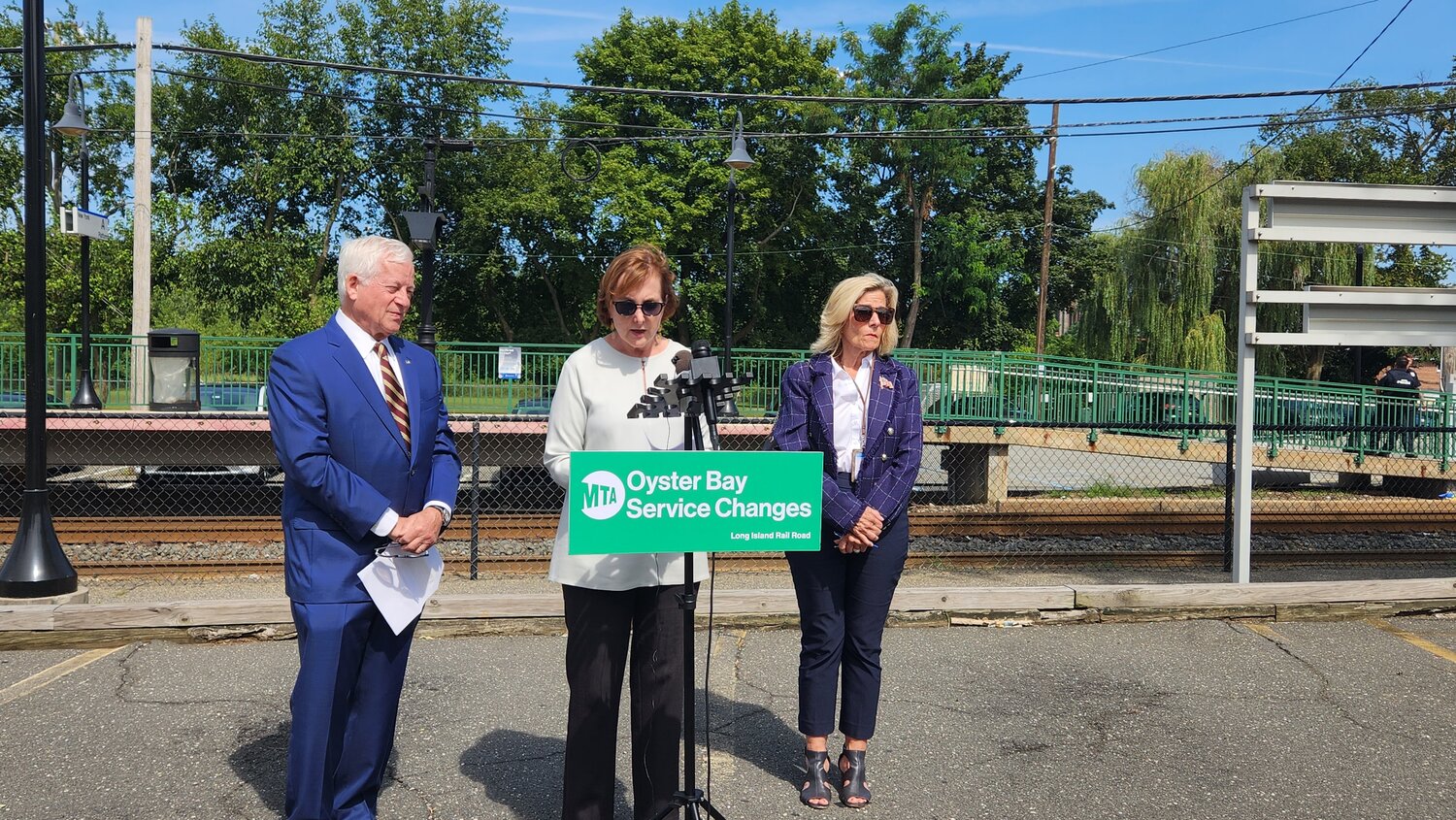Long Island Rail Road changes become effective Sept. 5
Commuters on the Oyster Bay Branch of the Long Island Rail Road can expect a lot of changes come Sept. 5. But what the LIRR is touting as simplified trips will be expensive for commuters like Jeffry Brown. A CEO of a company in Manhattan, he is trying to convince his employees to return to work in person, which would require for most taking the Long Island Rail Road. Brown wrote in an email to the Herald that the changes will cost him an additional $120 a month for a municipal parking permit to use another station which he will need to do because of the LIRR’s changes. Although public policies should encourage people to take mass transit, the proposed changes will do the opposite for the Greenvale commuter.
“The core issue is this: the MTA LIRR do not have any idea of the actual addressable market for passenger service on the Oyster Bay line,” Brown wrote. “If they do the market research work, they will undoubtedly find there is a lot of demand but many people who would use the Oyster Bay line go to Manhasset or Hicksville. The Oyster Bay line product offering is garbage. The current Oyster Bay trains belong in a museum.”
When service was changed in February after the launch of the new LIRR schedules adjusted to accommodate service to the second Manhattan terminal at Grand Central Madison, commuters faced longer commutes, and train times were drastically adjusted. Starting Sept. 5, the express trains on the Oyster Bay rail line will run on a skip-stop basis. The 6:55 a.m. train from Oyster Bay will now depart at 7:01 a.m. and will no longer stop at Glen Cove, Sea Cliff, Greenvale, Albertson, or Mineola. Riders on the 7:17 a.m. train from Oyster Bay who are traveling to Penn Station will transfer to an empty train that originates at Jamaica, reducing crowding.
Although commuters like Brown are discouraged by the changes, MTA officials have declared it as a win by the LIRR and elected officials as a service improvement. Long Island Rail Road interim president Catherine Rinaldi joined Assemblyman Charles Lavine and Glen Cove Mayor Pamela Panzenbeck at the Glen Street station on Aug. 22 to celebrate the forthcoming service changes, which Rinaldi said, “came as the result of a lot of conversations and in-person meetings” with Oyster Bay commuters and representatives.”
“We are so thrilled to be able to make these improvements for our Oyster Bay Branch customers,” Rinaldi said. “Despite our operational challenges and limitations, these improvements show a willingness to work with our riders and make adjustments wherever possible to improve their commutes. This marks the very first time in modern history that we will be offering a.m. peak service on the branch.”
“They’ve been asking for this for a long time,” Panzenbeck said. “If it doesn’t work out I’m sure they’ll adjust as we go along, but we have to give everything a chance.”
Since the first week of April, the Long Island Rail Road’s 5:56 a.m. train from Oyster Bay to Penn Station, and the 6:22 p.m. train from Penn to Oyster Bay have not been stopping at Mineola. Two Mineola stops were eliminated after discussions among MTA officials, Assemblyman Lavine and Glen Cove City Councilwoman Fugazy Scagliola, who sent a joint letter to MTA chairman Janno Lieber earlier this year. The letter indicated that while the MTA’s East Side Access megaproject “is a game changer for many, the riders on the Oyster Bay line are being disadvantaged.”
Fugazy Scagliola suggested removing the two Mineola stops as a first step to improving the line. Since then, she has heard feedback that commuters are saving six minutes per trip since the two Mineola Stops were removed. Fugazy Scagliola said she understands that omitting the two Mineola stops isn’t as big a change as most commuters would like, but she believes it’s a step in the right direction for improved service.
Earlier this year commuters started a petition on change.org, requesting that the MTA create schedules that reduce travel time on the Oyster Bay line to Penn Station and Grand Central Madison during rush hour, among other suggestions.
“We started the petition a few months ago, not knowing where it will lead and not knowing the support we would receive, which has been overwhelming,” the creators of the petition wrote in a statement. “Over 2,200 citizens signed the petition and we have engaged in countless discussions with riders, businesses and elected officials and MTA leadership. We believe the changes announced today including the modified express pilot are a step in the right direction for the Oyster Bay line.”






